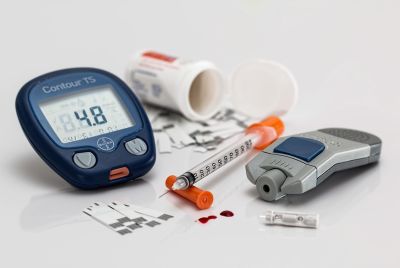Menopause accelerates body ageing, not the other way round
Women who enter menopause early see their cells age quicker than other women.

Early menopause could promote biological ageing in women, putting them at greater risk of age-related diseases and premature death.
These are the results of a study published in PNAS and conducted by scientists from UCLA. Much research had been conducted previously regarding the consequences of menopause on women's health – looking at examples of the risk of developing chronic diseases, or dying prematurely. None, however, had looked at the direct impact of menopause on biological ageing.
"Our study is the first to focus on the biological age of different cells in the body. We found that women who enter menopause early had cells that aged faster", lead author Steve Horvath told IBTimes UK.
"However, these associations were expected so we decided to go further in our analysis to understand whether it was menopause that accelerated biological ageing, or if accelerated biological ageing resulted in earlier menopause."
The aim of this study was thus to settle the debate about what came first: accelerated body ageing or menopause?
Three lines of evidence
The scientists used data from four large observational studies known as the Women's Health Initiative, Invecchiare nel Chianti (InChianti), Parkinson's disease, Environment, and Genes, and the United Kingdom Medical Research Council National Survey of Health and Development.
They assessed the age of blood, saliva, and buccal cells (collected from inside the cheek). The women's biological age analysis is based on three lines of evidence: a genetic marker associated with menopause, the effects of surgical menopause induced by removal of ovaries and the impact of menopausal hormonal therapies.

Women who had gone through 'surgical' menopause – with effects similar as early menopause – had an older biological age, while those who had received menopausal hormonal therapies to compensate the effects of menopause were found to have 'younger' buccal cells.
A genetic marker associated with early menopause also correlated with accelerated biological ageing.
Taken together, these findings support the causal link between early menopause on biological ageing. This ageing of the body puts them at greater risk of diseases and early death.
A biological clock
When the researchers talk of 'biological ageing' they are referring to epigenetic ageing – changes to gene expression which here constitute signs of the cells ageing.
In the study, they also wanted to assess how fast menopause made the body age. They decided to compare the biological age of women with their chronological age, using a 'biological clock' – a chemical biomarker linked to ageing and known as methylation.
The scientists discovered that menopause sped up cellular ageing by an average of 6%. This means that if a woman enters early menopause at age 42 (whether naturally or through surgical removal of ovaries), her body will be a full year older at age 50 than a woman who entered menopause at age 50.
Implications for women
The study does not offer concrete solutions for women who enter menopause early but it does re-open a very important scientific debate about menopausal hormonal therapy as a means to help them.

For long, there has been great hopes that menopausal hormonal therapy would bring great benefits to women after they reached this crucial stage in their live, preventing the development of chronic or heart disease that generally start appearing after menopause.
However, this hope was shattered when studies suggested the therapies may in fact slightly increase the risk of some diseases.
Since then, the question of whether menopausal hormonal therapy is beneficial has been controversial.
The study brings new evidence about potential benefits of menopausal hormonal therapies, by showing they may slow down the ageing of buccal cells.
"Our study adds to this important debate about menopausal hormonal therapy by indicating they may counter the effects of menopause on the biological age of certain cell types. It is a large, rigorous study which provides hard evidence that may hopefully contribute to the development of better and safer therapies", Horvath concludes.
© Copyright IBTimes 2025. All rights reserved.






















